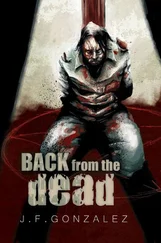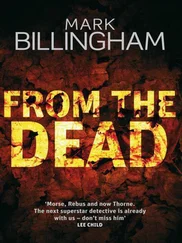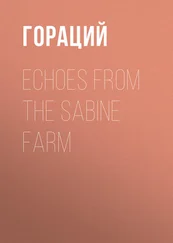The waitress was young, probably not even twenty yet, and she looked as if she enjoyed her job.
“Are you open all year round?” asked Julia as she handed over the money.
She was surprised that there were still so many people around in Långvik in general and at the harbor hotel in particular, even though it was autumn.
“From November to March we’re only open on weekends, for conferences,” said the waitress.
She took the money and opened the wallet around her waist to pick out some one-krona pieces.
“Keep the change,” said Julia; she glanced again out at the gray water outside the window, then went on: “Another thing I was wondering... Do you know if there’s anyone here in Långvik called Lambert? Lambert, and then something ending in — son... Svensson or Nilsson or Karlsson. Is there a Lambert here?”
The waitress looked thoughtful and shook her head. “Lambert?” she said. “It’s a name you’d remember, but I don’t think I’ve heard it.”
She was too young to know about Långvik’s older residents, thought Julia. She nodded and got up, but the waitress said suddenly:
“Ask Gunnar. Gunnar Ljunger. He’s the one who owns this hotel. He knows nearly everybody in Långvik.” She turned and pointed. “You go out through the main entrance, then left, then along to the side of the hotel. That’s where the office is — he should be there now.”
Julia thanked her and left the restaurant. She’d drunk ice water with her lunch today; it was starting to become a habit. It was nice to have a clear head as she walked out into the cold air of the hotel parking lot, even if a wine-induced sense of calm might have helped if she was going to see Lambert again...
Lambert Svensson or Nilsson or Karlsson.
Julia ran a hand through her hair and went around the side of the hotel. There was a wooden door with a number of company signs next to it, and the top one said LÅNGVIK CONFERENCE CENTER. She opened the door and walked into a small reception area with a yellow carpet and big green plastic plants.
It was like walking into an office in the middle of Gothenburg. Soft music was playing in the background. A young, smartly dressed woman was sitting at the reception desk, and an equally young man in a white shirt was leaning against it. Both looked at Julia as if she had interrupted an important conversation, but the receptionist was quickest to greet her and smile. Julia said hello back, feeling slightly tense as always when she met new people, and then she asked about Gunnar Ljunger.
“Gunnar?” said the receptionist, looking at the man by her desk. “Is he back from lunch?”
“He is,” said the man, nodding to Julia. “Come with me and I’ll show you.”
Julia followed him along a short corridor with a half-open door at the end. He knocked and pushed it open at the same time.
“Dad?” he said. “You’ve got a visitor.”
“Okay,” said a deep male voice. “Come in.”
The office wasn’t particularly large, but the view over the beach and the Baltic through the picture window was glorious. The hotel owner, Gunnar Ljunger, was sitting at the desk; he was a tall man with a gray beard and bushy gray eyebrows, and he was tapping away on a calculator. He was wearing a white shirt with suspenders, and a brown jacket was draped over the back of the chair behind him. On the table next to the calculator was an open copy of Ölands-Posten, and Ljunger appeared to be looking through the paper and doing his calculations at the same time.
“Hi,” he said, glancing up at Julia.
“Hi.”
“How can I help?”
Ljunger smiled and carried on tapping numbers into his calculator.
“I’ve just got one question,” said Julia, stepping into the room. “I’m looking for Lambert.”
“Lambert?”
“Lambert in Långvik... Lambert Karlsson, I think his name is.”
“That would be Lambert Nilsson,” said Ljunger. “There’s no other Lambert here in Långvik.”
“That’s it... Nilsson, that’s his name,” said Julia quickly.
“But Lambert’s dead,” said Ljunger, shaking his head. “He died five or six years ago.”
“Oh.”
Julia felt a quick stab of disappointment, but she had partly expected that answer. Lambert had looked old back in the seventies, that afternoon all those years ago when he had come chugging along on his moped to find out what had happened to her son.
“His younger brother Sven-Olof is still alive, of course,” added Ljunger. “He lives up on the hill, behind the pizzeria; Lambert used to live there too. Sven-Olof sells eggs, so look for a house with hens in the yard.”
“Thanks.”
“If you’re going there, tell Sven-Olof from me that it’s even cheaper now to sign up to the city water supply,” said Lunger with a smile. “He’s the only one in the whole of Långvik who still thinks a well of his own is best.”
“Okay,” said Julia.
“Are you staying with us?” asked Ljunger.
“No, but I used to come here to the dances when I was young... I’m staying over in Stenvik. My name is Julia Davidsson.”
“Related to old Gerlof?”
“I’m his daughter.”
“Really?” said Ljunger. “Give him my best, then. He’s made several ships in bottles for us, for the restaurant. We’d really like some more.”
“I’ll tell him that.”
“It’s lovely over there in Stenvik, isn’t it?” mused Ljunger. “Nice and peaceful, with the quarry closed and all those empty cottages.” He smiled. “Of course, we’ve taken a different approach up here... expanding, going for tourism and golf and conferences. We think it’s the only way to keep the coastal villages in northern Öland alive.”
Julia nodded, with some hesitation. “It does seem to be working,” she said.
Should Stenvik have invested in tourism as well? Julia wondered about that as she left the hotel office and walked across the windy parking lot. There was no answer, because by now Långvik was so far ahead they’d never catch up. It would be impossible to build a beach hotel or pizzeria in Stenvik. The village would remain more or less deserted for most of the year, livening up for just a couple of months in the summer when the visitors came, and there was nothing that could be done about it.
She walked past a gas station by the harbor and continued along the wide village street past the pizzeria.
The street curved inland and up a hill, and now she had the wind at her back. At the top was a grove of trees and behind it a wall surrounding a yard containing a small whitewashed house and a stone henhouse with its own enclosure.
There was no sign of any hens, but a wooden sign by the gate proclaimed EGGS FOR SALE.
Julia opened the gate and walked along a path made of rough limestone slabs. She passed a water pump painted green, and remembered what Gunnar Ljunger at the beach hotel had said about the city water supply.
The door of the house was closed, but there was a bell. When Julia had pressed it there was silence for a few moments, then a thudding noise. The door opened. An elderly man looked out, thin and wrinkled, with fine, silvery hair combed over his bald pate.
“Afternoon,” he said.
“Afternoon,” said Julia.
“Did you want some eggs?”
The old man appeared to be in the middle of his lunch, because he was still chewing.
Julia nodded. No problem, she could buy some eggs.
“Is your name Sven-Olof?” she asked, without the usual unpleasant feeling of tension she got whenever she met someone new.
Perhaps she was beginning to get used to meeting strangers here on Öland.
“It is indeed,” said the man, clambering into a pair of big black rubber boots standing just inside the door. “How many would you like?”
Читать дальше












